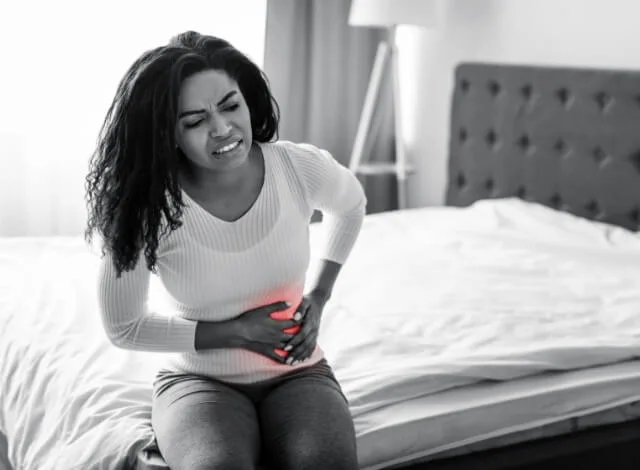The lowdown on ovarian cysts

An imbalance in the hormones is believed to cause ovarian cysts.
The word 'cyst' can make anyone uncomfortable. But you should know that not all cysts are harmful; some can be benign too. That is often the case with ovarian cysts, bubble-like, fluid-filled sacs that develop in ovaries. It is a common condition among women and occurs at least once in a lifetime.
Although painless and harmful, you should still have a basic understanding of ovarian cysts and how they affect you, your ovaries, and your ability to reproduce. Here's a starter's guide on ovarian cysts.
Risk factors of ovarian cysts
There are several factors that increase the risk of developing ovarian cysts. These include:
1. Hormonal imbalance
An imbalance in the hormones is believed to cause ovarian cysts. Hormonal drugs can also interfere with the natural process of ovulation, which can increase the risk.2. Pelvic infections
Severe infection in the pelvic can spread to the ovaries and cause cysts.3. Pregnancy
Pregnant women are more likely to experience ovarian cysts. This is because the cysts that form at the time of ovulation lasts throughout pregnancy.Symptoms of Ovarian cysts
You are unlikely to notice any kind of symptoms with ovarian cysts. If you do experience something unusual, it is often limited to swelling and pain in the lower abdomen. However, a ruptured cyst can cause sharp and severe pain. More rare and severe cystic symptoms include:
- Immense pelvic pain
- Discomfort during bowel movement
- Inability to pass urine
- Sudden weight gain
- Pain during periods
- Unexplainable vaginal bleeding
- Tenderness in the breasts
Effect of ovarian cysts on pregnancy
Ovarian cysts commonly develop during pregnancy. Such cysts are usually harmless and do not have a negative effect on your body. However, the cysts may sometimes rupture and cause problems at the time of childbirth. In such cases, your doctor will help monitor ovary pain, cystic symptoms, and the effects, if any, to ensure that you have a safe pregnancy.
When is it a real cause of concern?
Sometimes, ovarian cysts can be a matter of concern and must not be ignored. If you find out that you have cysts and notice the following symptoms, it is time to consult a doctor immediately.
- Severe fever and nausea
- Severe abdominal pain
- Weakness
- Inability to breathe
- Incessant bleeding
These are severe ovarian cysts symptoms and could mean that the sacs have opened and ruptured. In some cases, although rare, surgical removal may be recommended.
Finding an ovarian cyst
Visit the doctor if you notice any symptoms related to ovarian cysts. The doctor will conduct a pelvic exam to detect any swelling of a cyst in your ovary. If a cyst is found, the doctor will ask you to undergo some tests such as the following.
Ultrasound
Sound waves are used to capture images of the body. This method allows the doctor to clearly understand the shape, size, location, and mass of the cyst.Pregnancy test
This is to rule out the possibility of a pregnancy.Hormonal level test
A hormonal test helps understand any problems with the hormones that could be triggering cystic eruptions.Blood test
For women who have hit menopause, a blood test is recommended to measure the amount of cancer-antigen 125 (CA 125) in the blood. A high level of CA 125 can signal the risk of ovarian cancer.
Preventing ovarian cysts
There is no way to prevent ovarian cysts during ovulation. They are usually a part of the process, which increases the likelihood. However, if you do get cysts repeatedly, you can consult your doctor who will then prescribe birth control as a measure. Birth control will stop you from ovulating, and in turn, reduce the risk of ovarian cysts.The long term outlook
Ovarian cysts in women with hormonal imbalance can cause infertility if left untreated for a long period. An advanced treatment plan could include removal or shrinking. Cysts that are larger than 5 centimetres in diameter are usually treated surgically. A doctor usually recommends surgery only after a 'wait and see' approach.In Conclusion
The key to dealing with ovarian cysts is to listen to your body and undergo a gynaecological exam from time to time. Ensure that you exercise, eat healthy foods, and maintain feminine hygiene. ALWAYS has a range of products like sanitary pads, panty liners and tampons that can help you better manage this condition. Just remember that there is nothing stopping you from being a tough woman while taking on the world.
Now with Always Period calculator, calculate your next period and track your ovulation period.
Disclaimer
Please note the date of last review or update on all articles. No content on this site, regardless of date, should ever be used as a substitute for direct medical advice, diagnosis or treatment from your doctor or other qualified clinician. Always is committed to ensuring that all of our products meet rigorous safety standards; Always pads prioritize safety, protection and comfort of its consumers.











